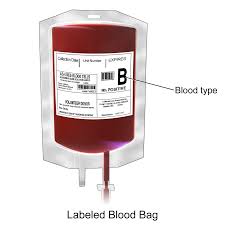Is it medical malpractice to use blood that has been stored for a long period of time to transfuse blood in adults going through complex cardiac surgical procedures?
 In the US red blood cell units can be stored for up to 42 days after they are collected. Previous studies have questioned this medical practice and have implied that the storage duration may impact the quality of the blood cell units. These studies which were based on observations showed a correlation between the transfusion of blood stored for a longer duration and increased morbidity and mortality. However according to National Institutes of Health the clinical significance of these findings was difficult to determine due to study-design limitations.
In the US red blood cell units can be stored for up to 42 days after they are collected. Previous studies have questioned this medical practice and have implied that the storage duration may impact the quality of the blood cell units. These studies which were based on observations showed a correlation between the transfusion of blood stored for a longer duration and increased morbidity and mortality. However according to National Institutes of Health the clinical significance of these findings was difficult to determine due to study-design limitations.
In order to get a better opinion on whether red blood cell storage duration impacts a patient’s clinical outcome after transfusion the NIH funded the Red Cell Storage Duration Study (RECESS) that was also supported by the National Heart, Lung, and Blood Institute (NHLBI).
RECESS was conducted at 27 hospitals in the US including Weill Cornell Medical College, Cornell University and Columbia University Medical Center in New York. The study evaluated 1,098 cardiac surgery patients who were randomized to receive red blood cell units stored for short (up to 10 days) or long periods (21 or more days). The study was conducted from January 2010 to January 2014.
The study found no statistical difference in the outcome of adult patients undergoing complex cardiac surgery receiving transfusions of red blood cell units stored for short (up to 10 days) versus long (21 or more days) periods. Therefore the NIH believes that there is no need to alter how hospitals currently transfuse blood in adults going through complex cardiac surgical procedures.
Read the press release
 New York Personal Injury Attorneys Blog
New York Personal Injury Attorneys Blog


